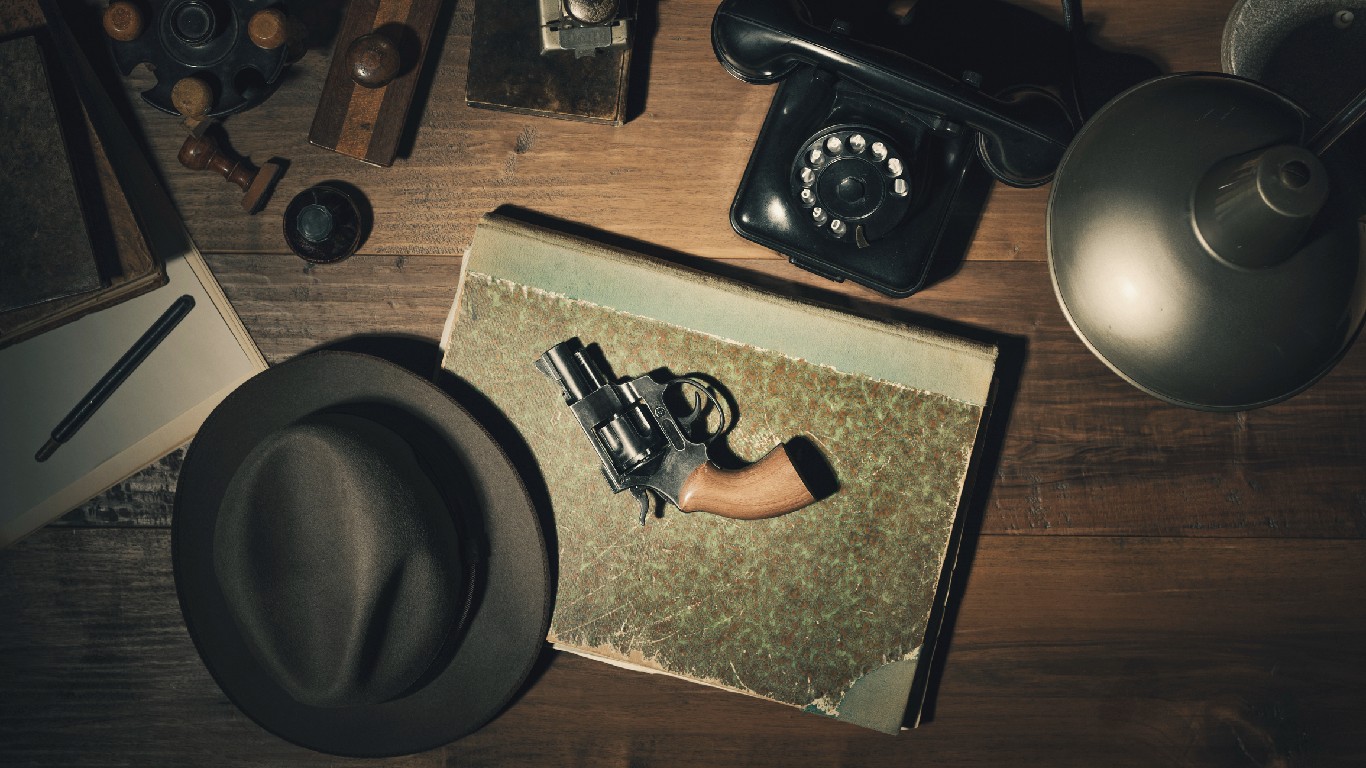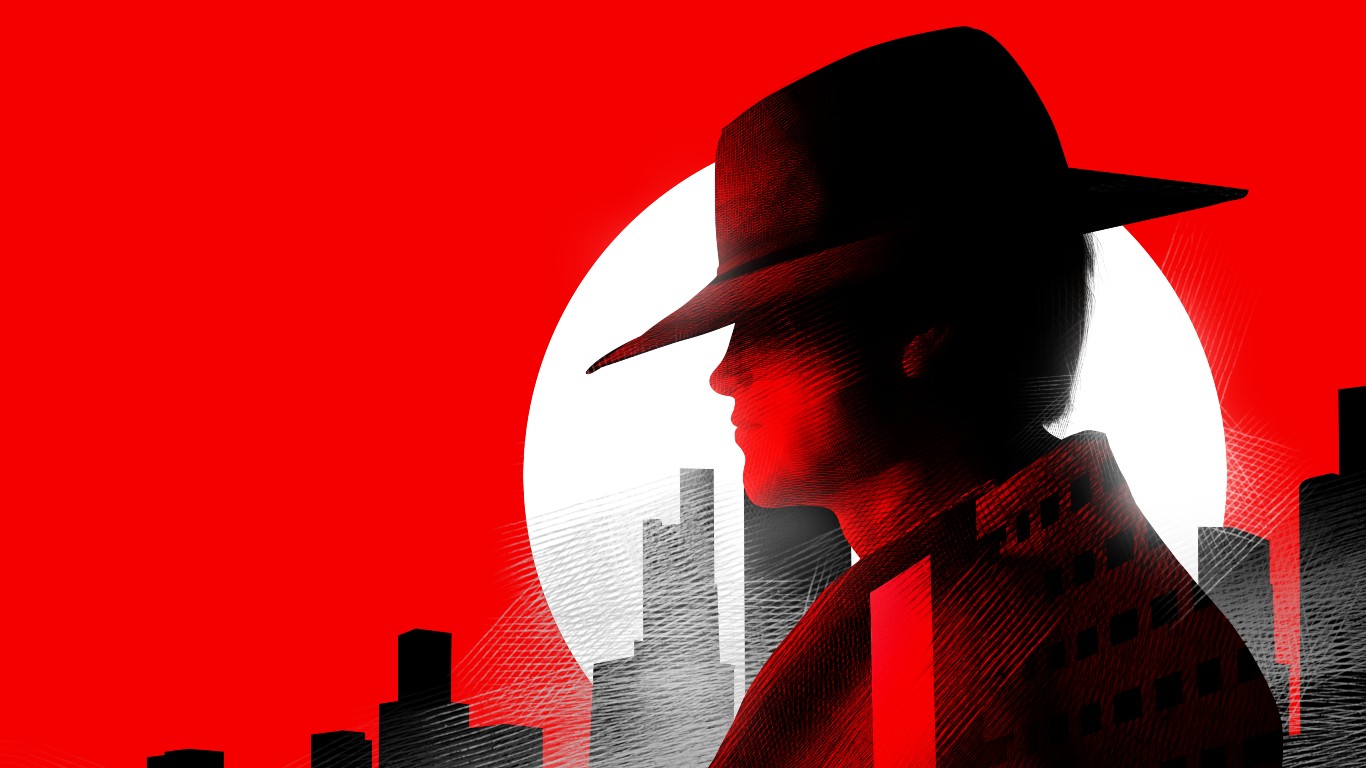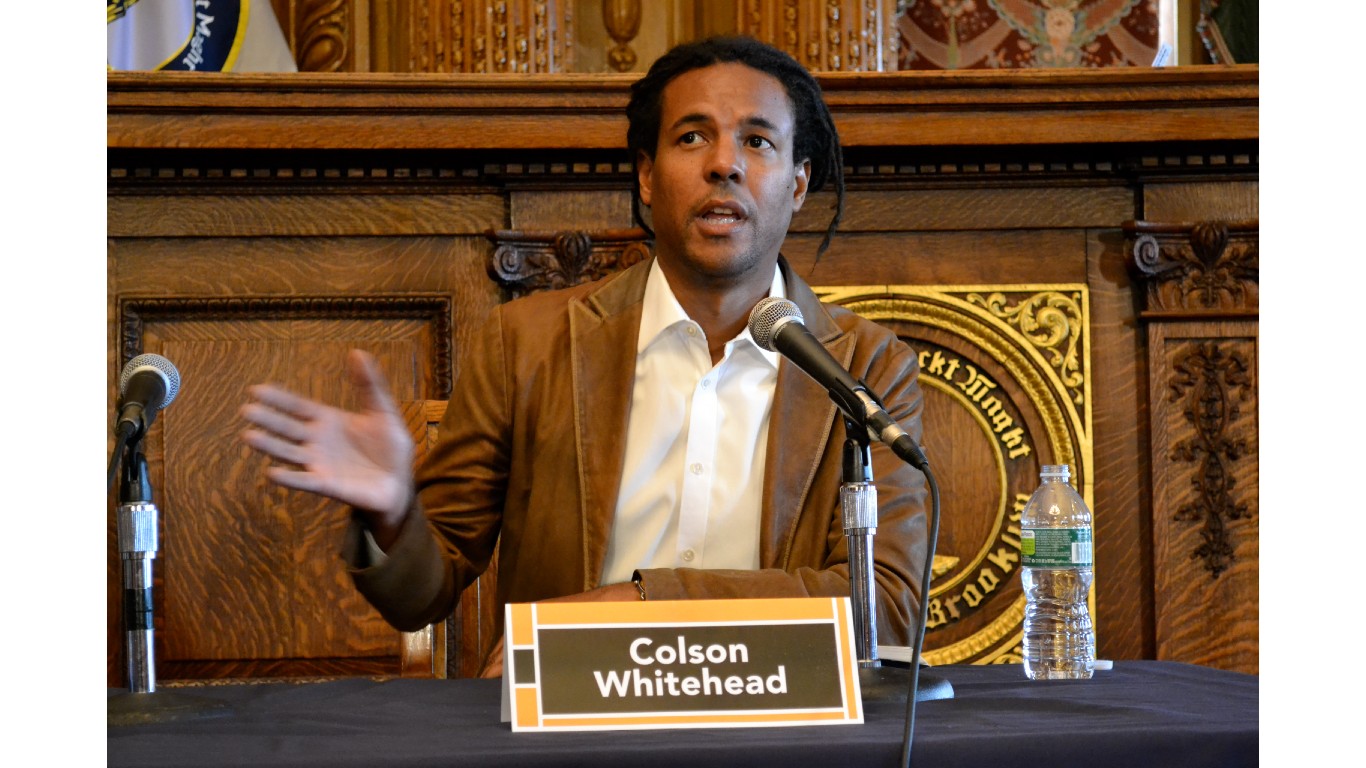
The books we read as children stay with us all our lives. It wouldn’t be an exaggeration to say they are the foundations of our education. In fact, children’s stories are basic to our culture. Some date back to ancient Greece and feature archetypal characters having memorable adventures. They’re more than good stories, too — often they’re also parables about moral behavior and good sense. (Don’t be mean to other people, and above all don’t get lost in the woods!)
24/7 Tempo has compiled a list of some of the most famous children’s books in the English language. Books like these books are rediscovered by every new generation — and some are regularly reinterpreted as plays and films. The titles and the characters in many of them will be familiar to almost everybody, whether they first appeared centuries ago or in recent decades — from Mother Goose to Snow White to Peter Rabbit (who is certainly one of the most famous bunnies of all time).
The books on our list aren’t necessarily just for children, and there may be more going on in them than meets the eye. For example, some critics have interpreted “The Wonderful Wizard of Oz” as a political allegory. Ernest Hemingway said that all modern American literature comes from Huck Finn.
Click here to see 23 of the most famous classic children’s books
Children’s books are big business too, and not just for publishers. Films based on them, such as “Cinderella,” “The Wizard of Oz,” and “The Jungle Book” have grossed hundreds of millions of dollars. These are the 50 top grossing movies of all time.
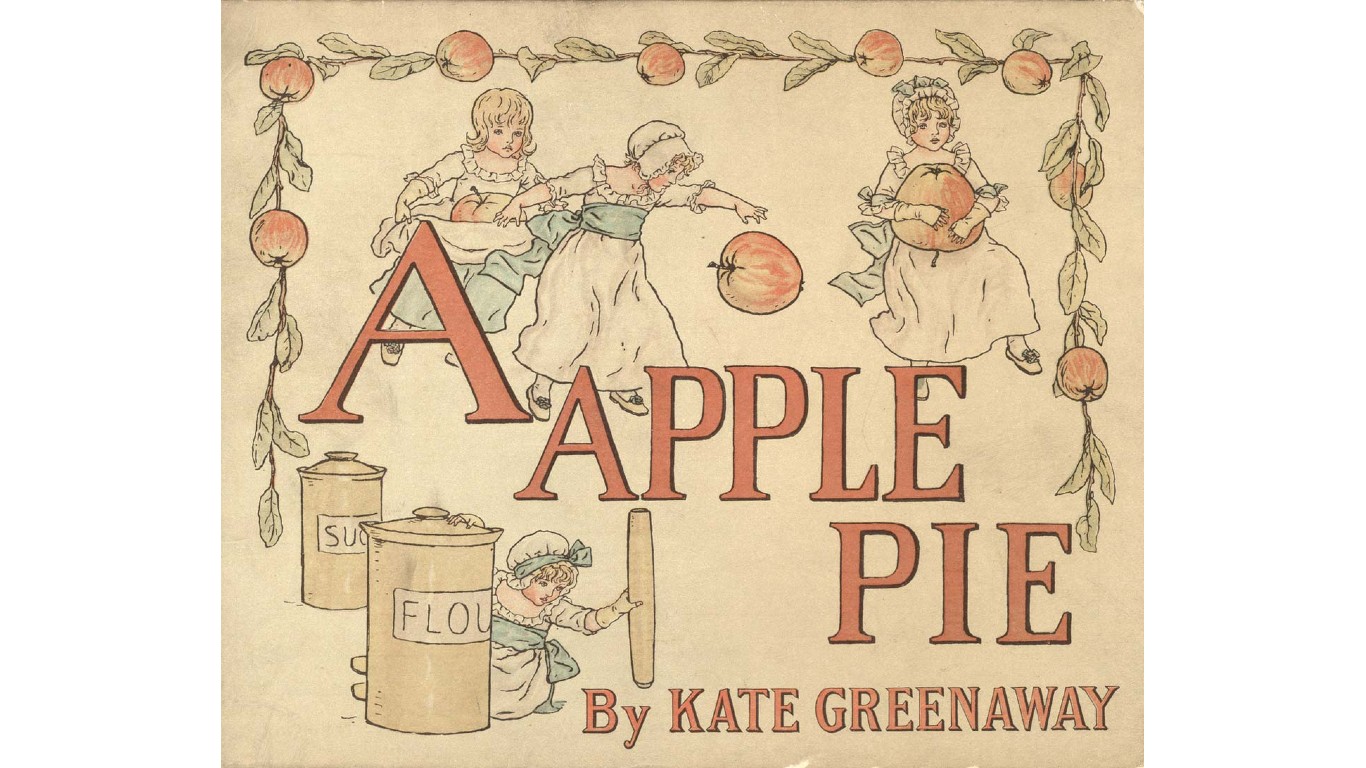
A Apple Pie
> By: Kate Greenaway
In this book dating from about 1886, English Victorian writer and artist Greenaway tells the story of a pie and the lengths people will go to for a taste of it. It has illustrations for every letter of the alphabet.
[in-text-ad]
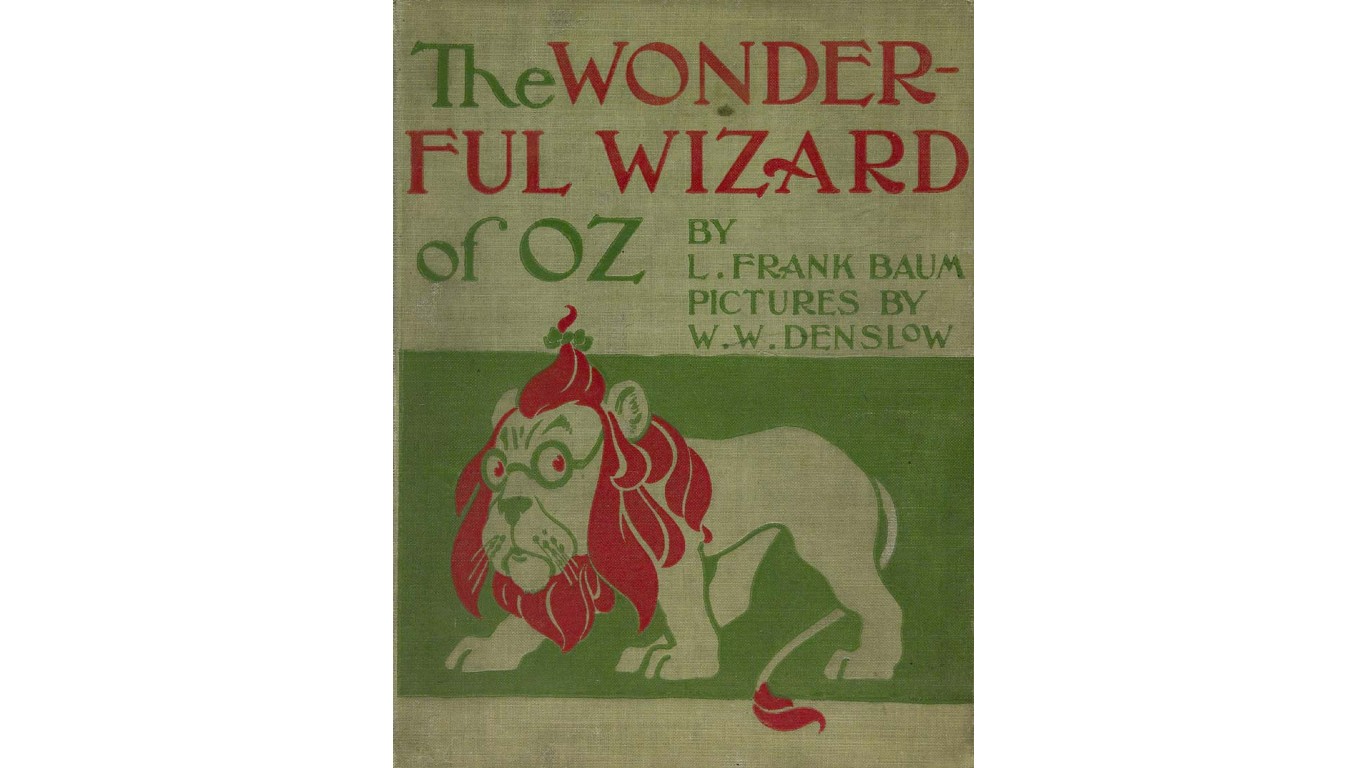
The Wonderful Wizard of Oz
> By: L. Frank Baum
Better known today as simply “The Wizard of Oz,” this is the story of farm girl Dorothy and her dog Toto, who are carried from their home in Kansas to the Land of Oz by a cyclone (the word author Frank Baum used to describe a tornado). First published in 1900, iIt has had a huge cultural impact, and is best remembered for the movie version, in which Judy Garland played Dorothy.
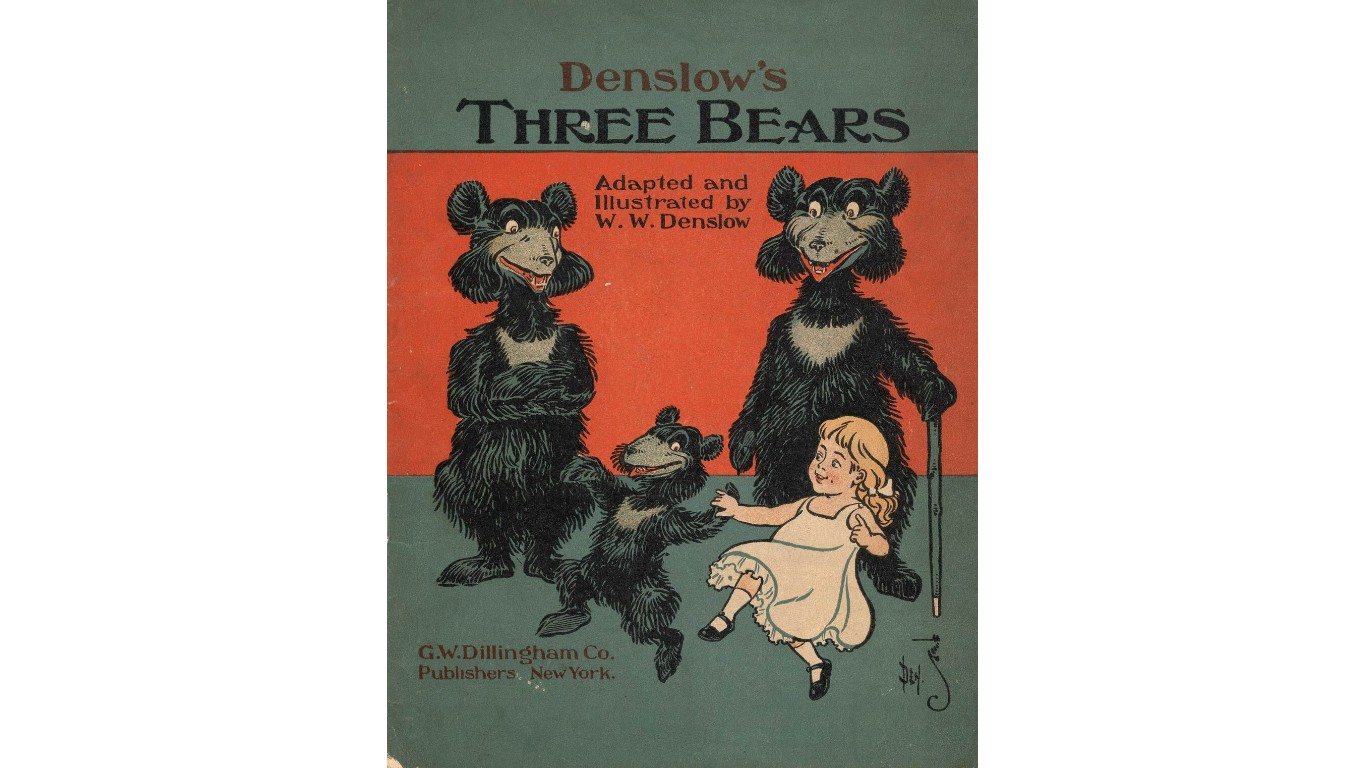
Denslow’s Three Bears
> By: W.W. Denslow
There are several variations on the popular English fairy tale “Goldilocks and the Three Bears,” of which the best-known is an 1837 retelling by poet Robert Southey. This version, first published in 1901, is a unique retelling of the story, with a heroine named Golden Hair, by William Wallace Denslow — who was also the illustrator of “The Wonderful Wizard of Oz” (see above).
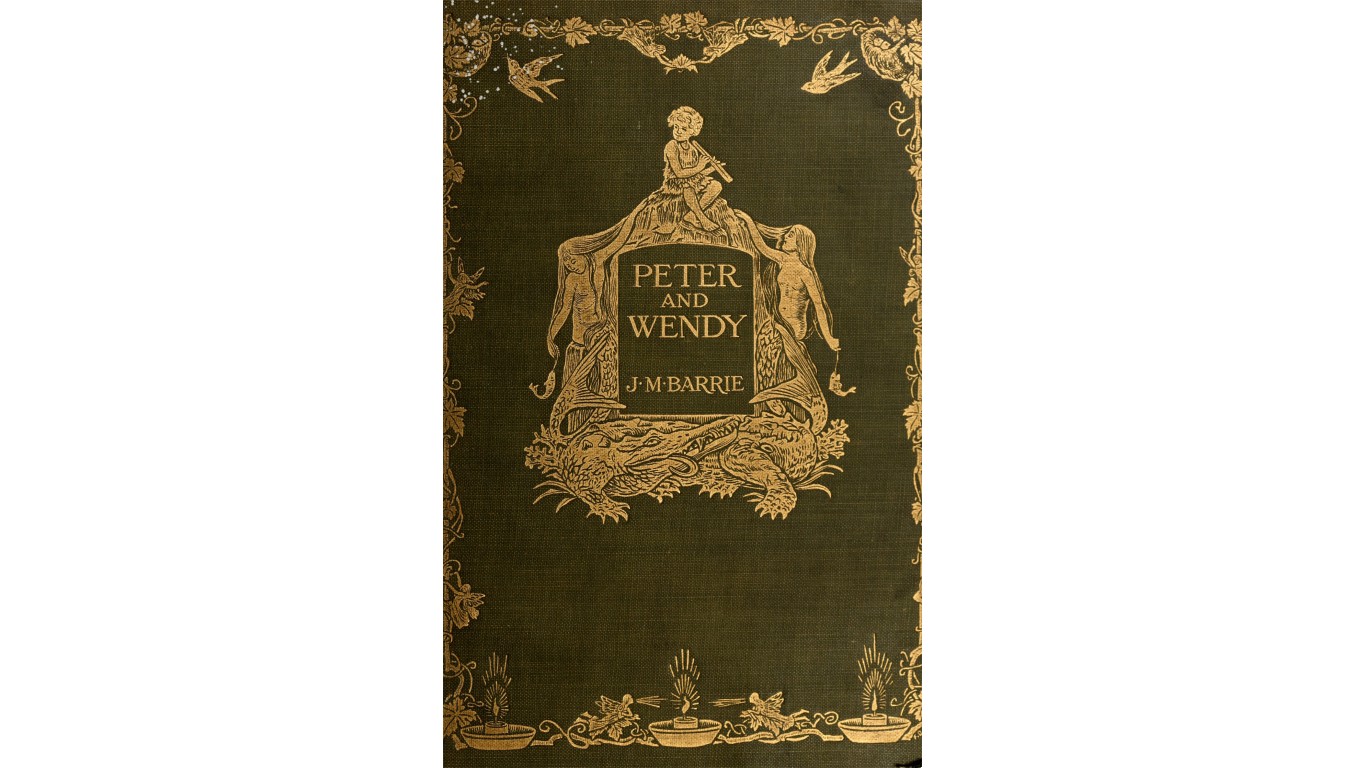
Peter and Wendy
> By: J.M. Barrie
“Peter and Wendy” was the original title of the classic work better known as “Peter Pan; or, the Boy Who Wouldn’t Grow Up” (or simply “Peter Pan”). The famous character first appeared in a 1902 adult novel called “The Little White Bird,” which was adapted into a play before becoming this well-loved story involving pirates, fairies, Lost Boys, and more.
[in-text-ad-2]
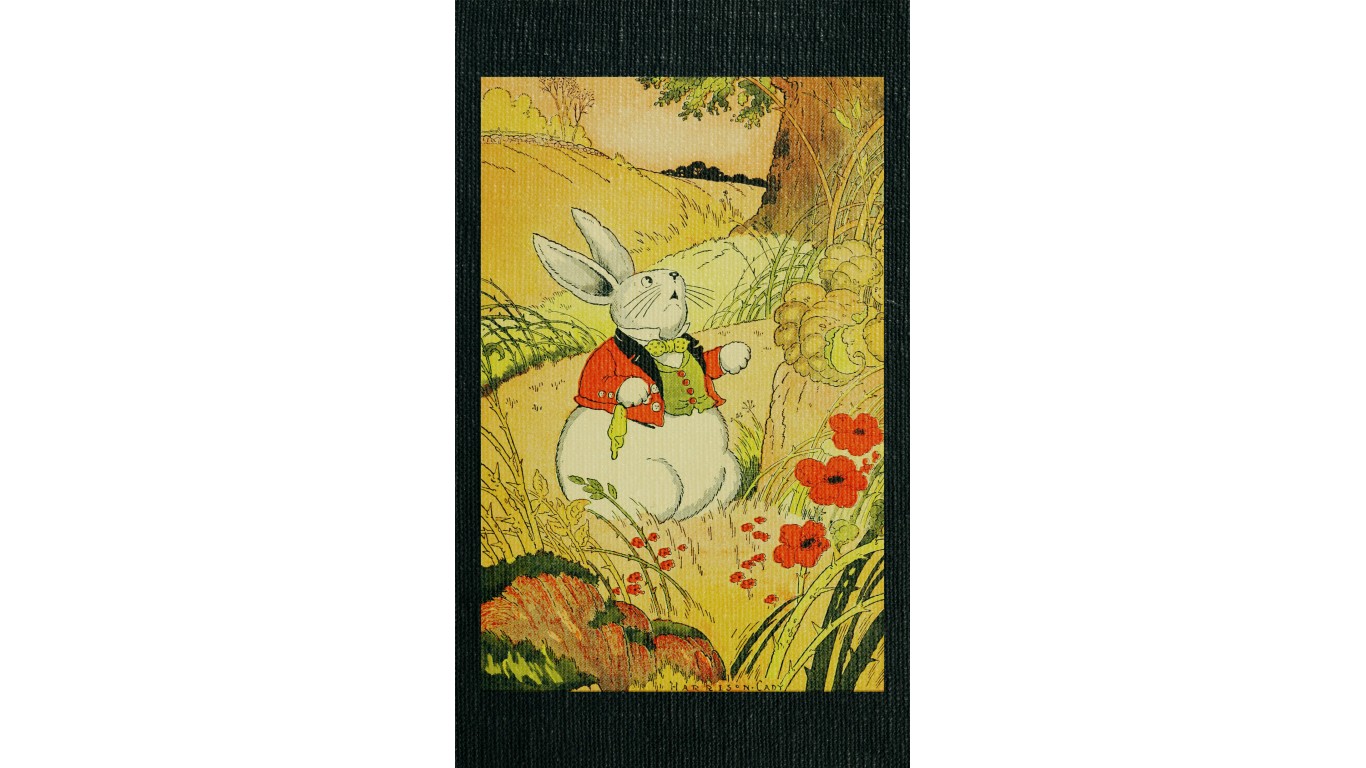
The Tale of Peter Rabbit
> By: Beatrix Potter
Peter Rabbit is an anthropomorphic character in several books by Beatrix Potter, beginning with this one in 1902. He lives with his sisters, Flopsy, Mopsy, and Cottontail. Peter Rabbit featured in successful films in 2018 and 2021, as well as being the basis for several TV series.
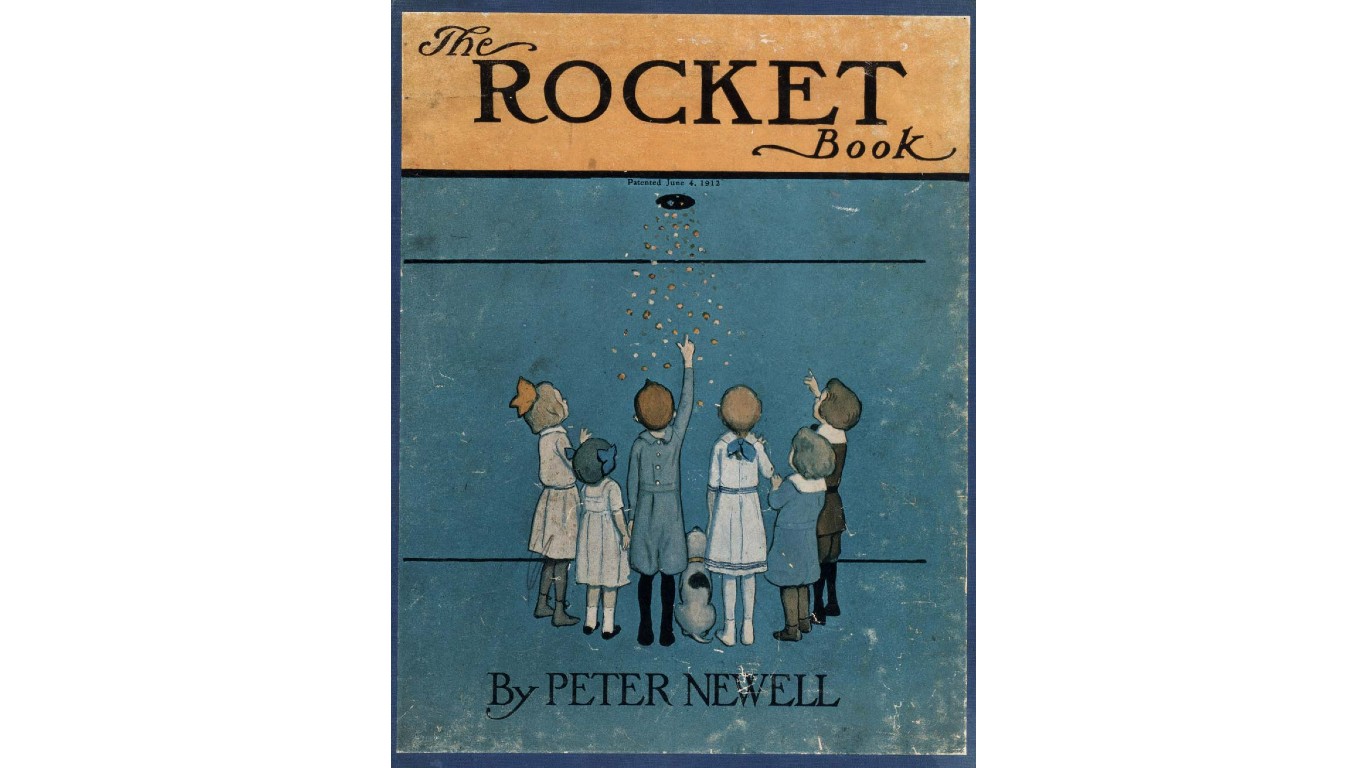
The Rocket Book
> By: Peter Newell
This unusual book, first published in 1912, tells the story — with watercolor illustrations by the author — of the progress of a rocket, lit in the basement by the janitor’s son, as it passes through each floor of an apartment building.
[in-text-ad]
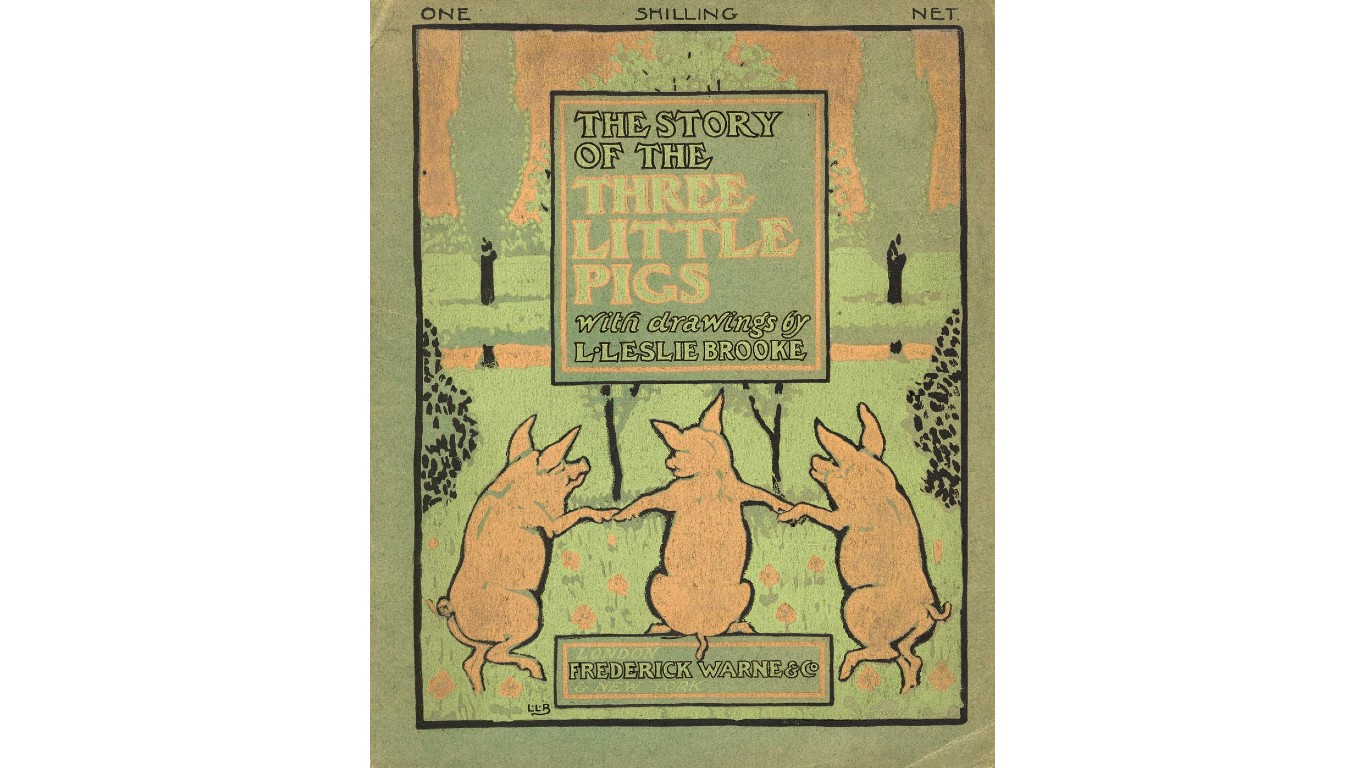
The Story of Three Little Pigs
> By: L. Leslie Brooke
This well-known cautionary tale first appeared in print in the 1840s but probably dates back further. Leslie Brooke illustrated this 1904 adaptation of the fable about three pigs who build their houses out of different materials. A Big Bad Wolf blows down the first two houses but is unable to destroy the third house, which is made of bricks.
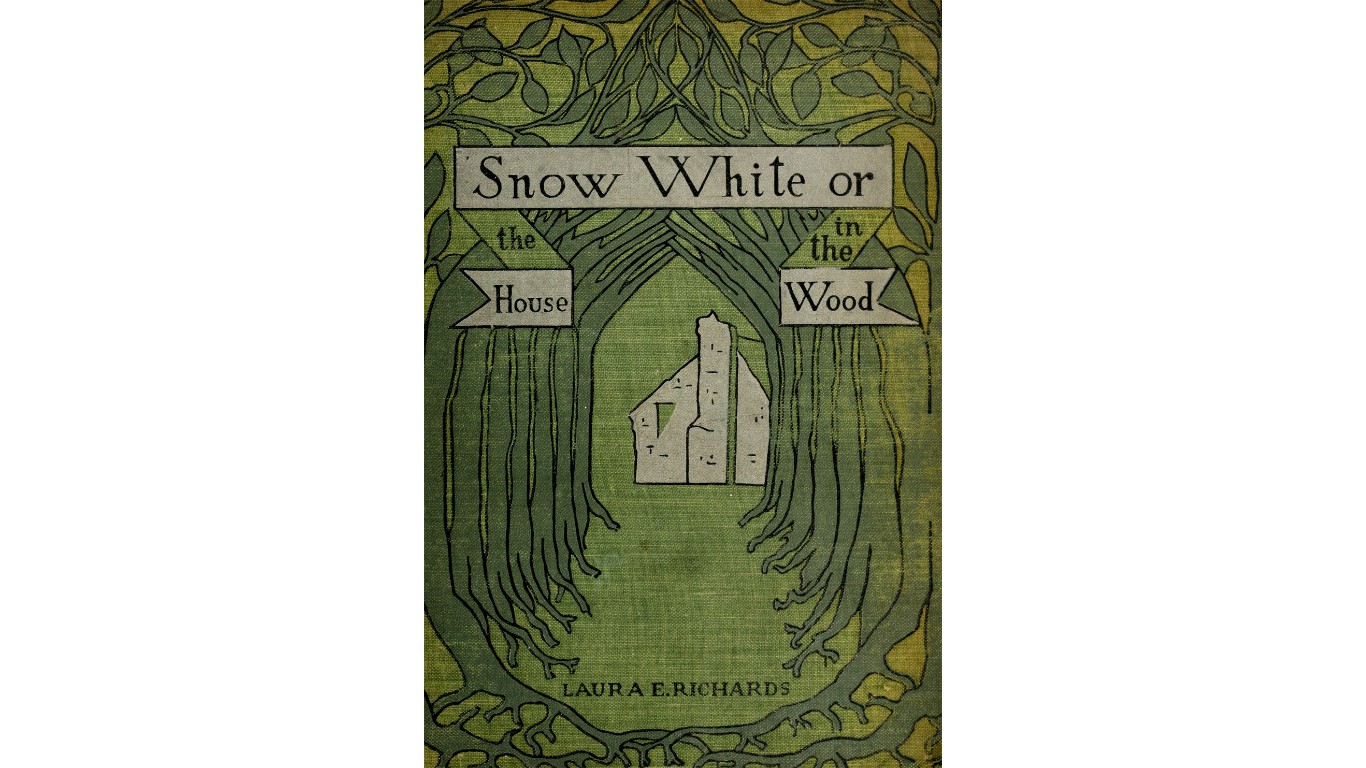
Snow White or the House in the Wood
> By: Laura E. Richards
The German fairy tale “Snow White” appeared in the first edition of “Grimms’ Fairy Tales” in 1812. This version is by Laura Richards, a prolific New England author who wrote biographies and poetry as well as children’s books. Her “Snow White,” about a little girl who runs away from her nanny and finds a strange house in the woods, was published in 1900.
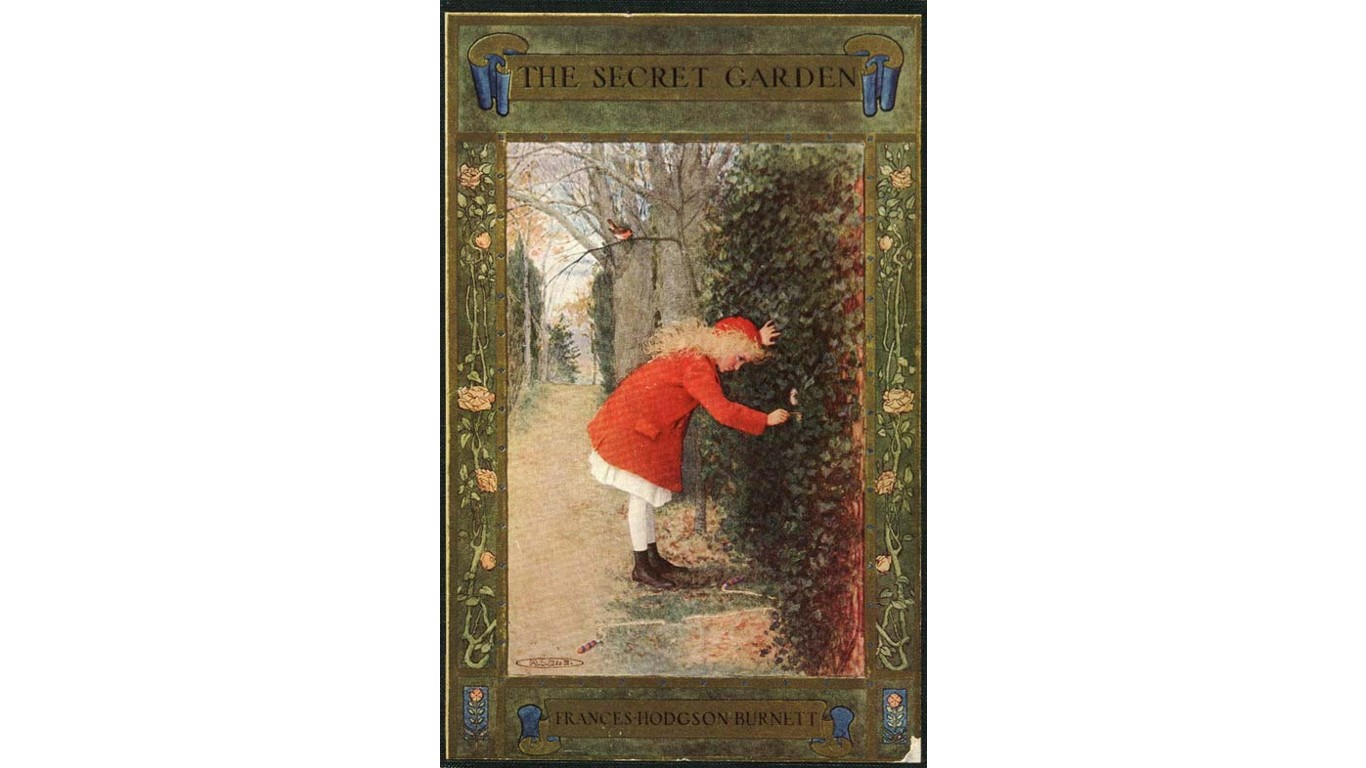
The Secret Garden
> By: Frances Hodgson Burnett
Mary Lennox, a neglected and unloved English girl, is sent to live at Misselthwaite Manor, where she discovers a secret garden and new friends. This classic story from 1911 has been adapted several times for stage and screen.
[in-text-ad-2]
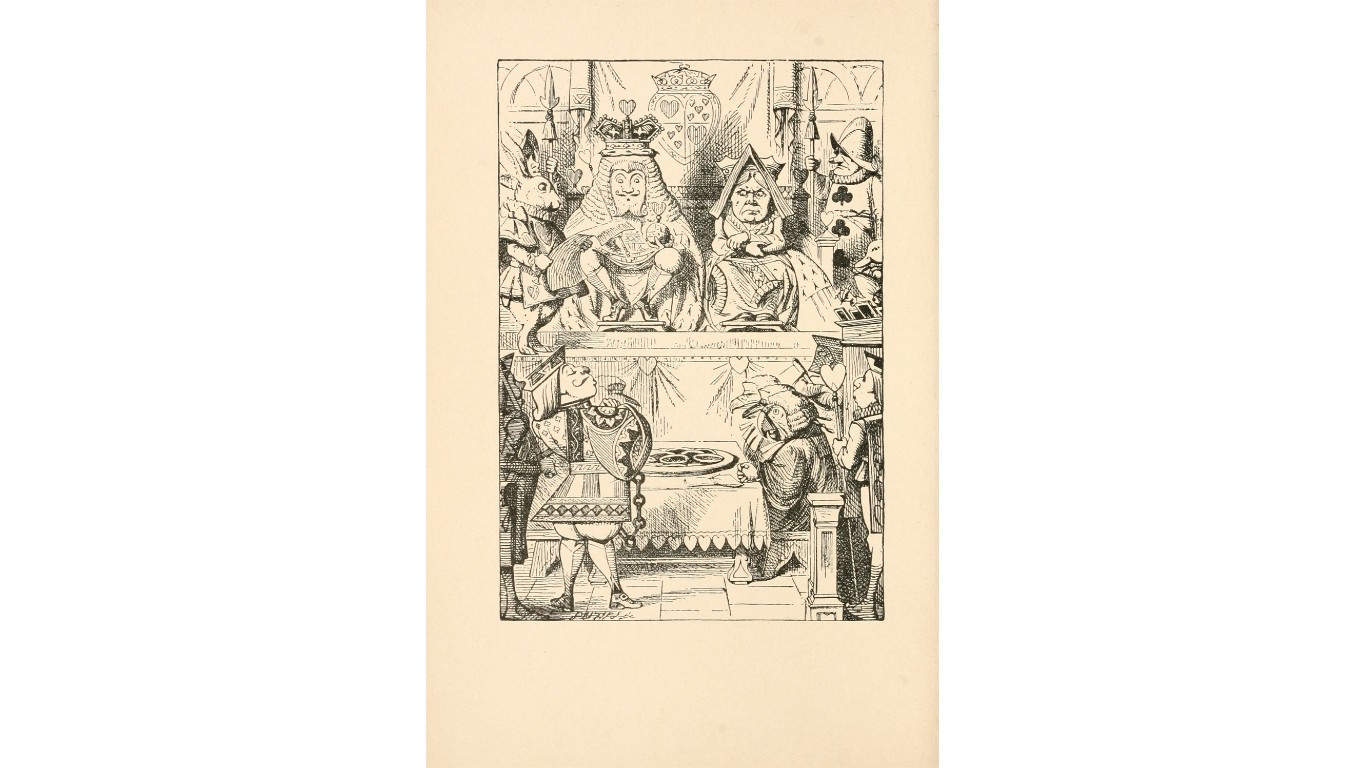
Alice’s Adventures in Wonderland
> By: Lewis Carroll
Better known as “Alice in Wonderland,” this is the story of a young girl who falls through a rabbit hole into a fantasy world populated by bizarre creatures, where very strange things happen. First published in 1865, it has since been translated into about 100 languages and adapted countless times for the theatre, movies, ballet, video games, and more.
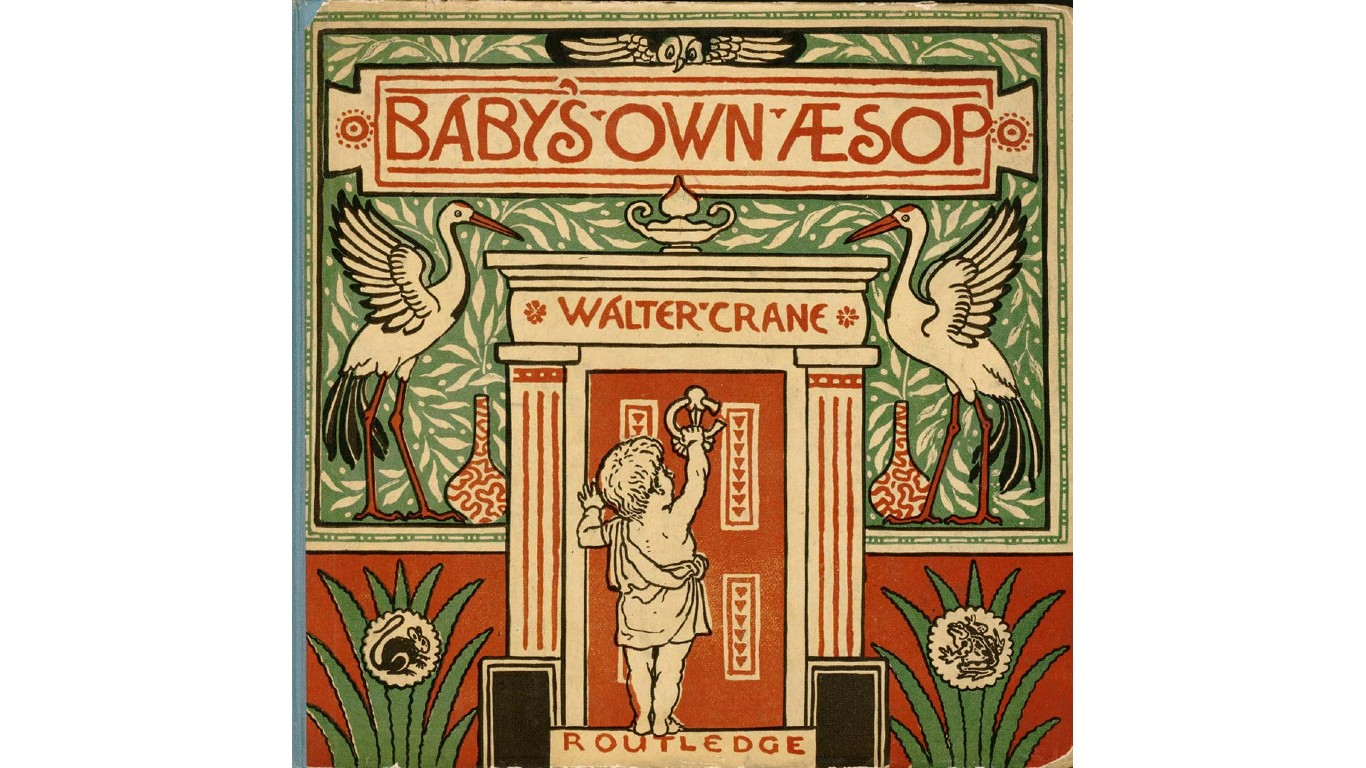
Baby’s Own Aesop
> By: Walter Crane
This is a retelling of “Aesop’s Fables” illustrated by the highly influential children’s book specialist Walter Crane and published in 1887. Aesop was a slave and storyteller who lived in ancient Greece, and his tales have become an indelible part of world culture.
[in-text-ad]
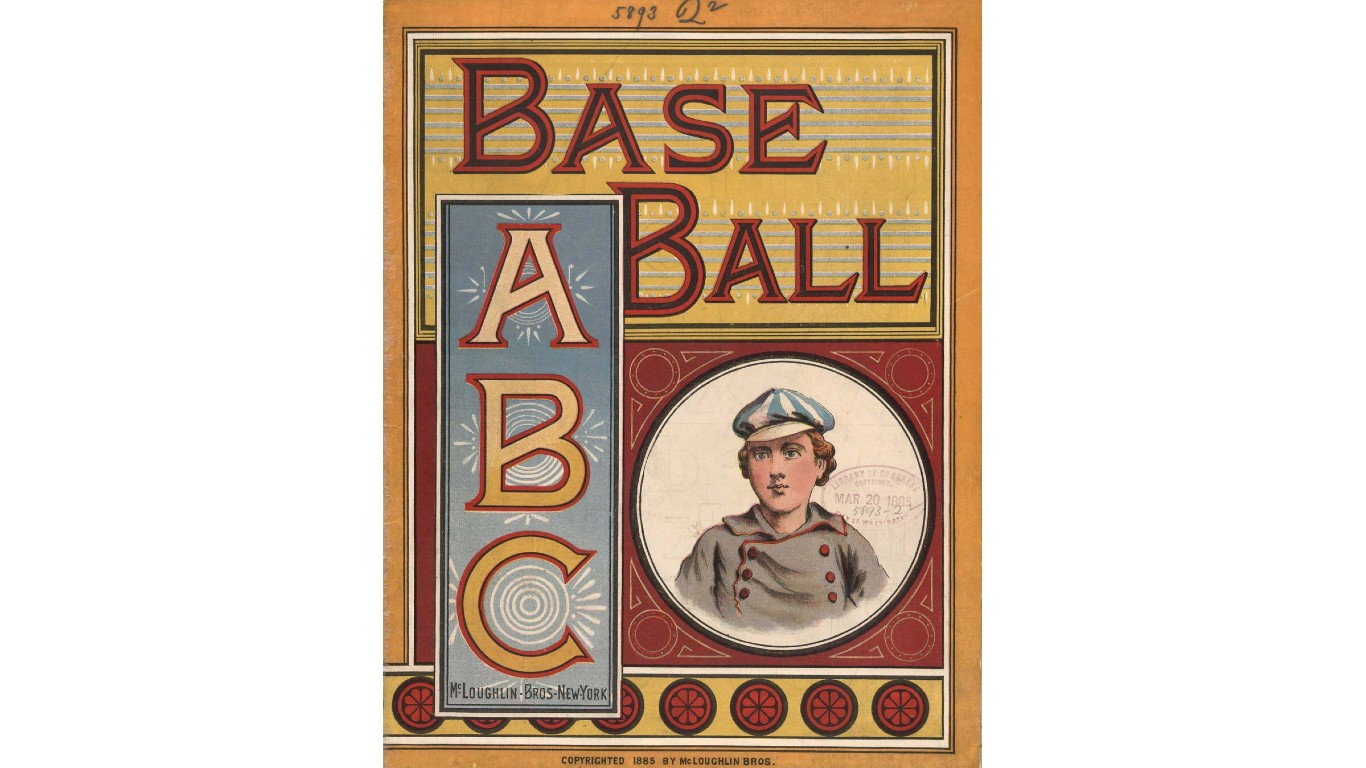
Baseball ABC
> By: McLoughlin Bros.
Appearing in 1885, this is a short book of baseball-related illustrations for the letters of the alphabet — “B is for Ball,” “D is for Diamond,” etc. The McLoughlin brothers were both the authors and publishers of this work.
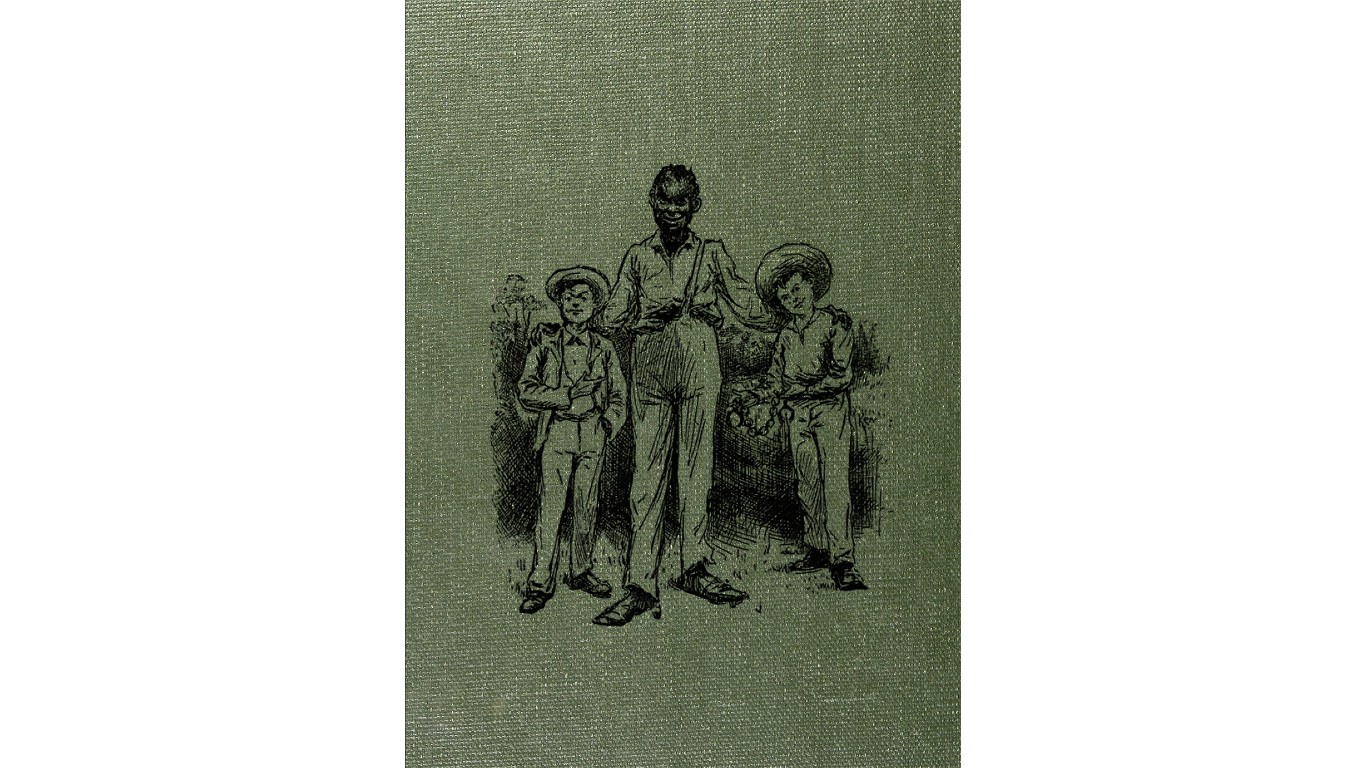
Adventures of Huckleberry Finn
> By: Mark Twain
This classic from 1885 is a sequel to Twain’s “The Adventures of Tom Sawyer.” Frequently banned for its supposed immorality and condemned as racist by some, It tells the story of Huck, a boy of 13 or 14, and his adventures in the Midwest. All modern American literature comes from Huck, according to Ernest Hemingway.
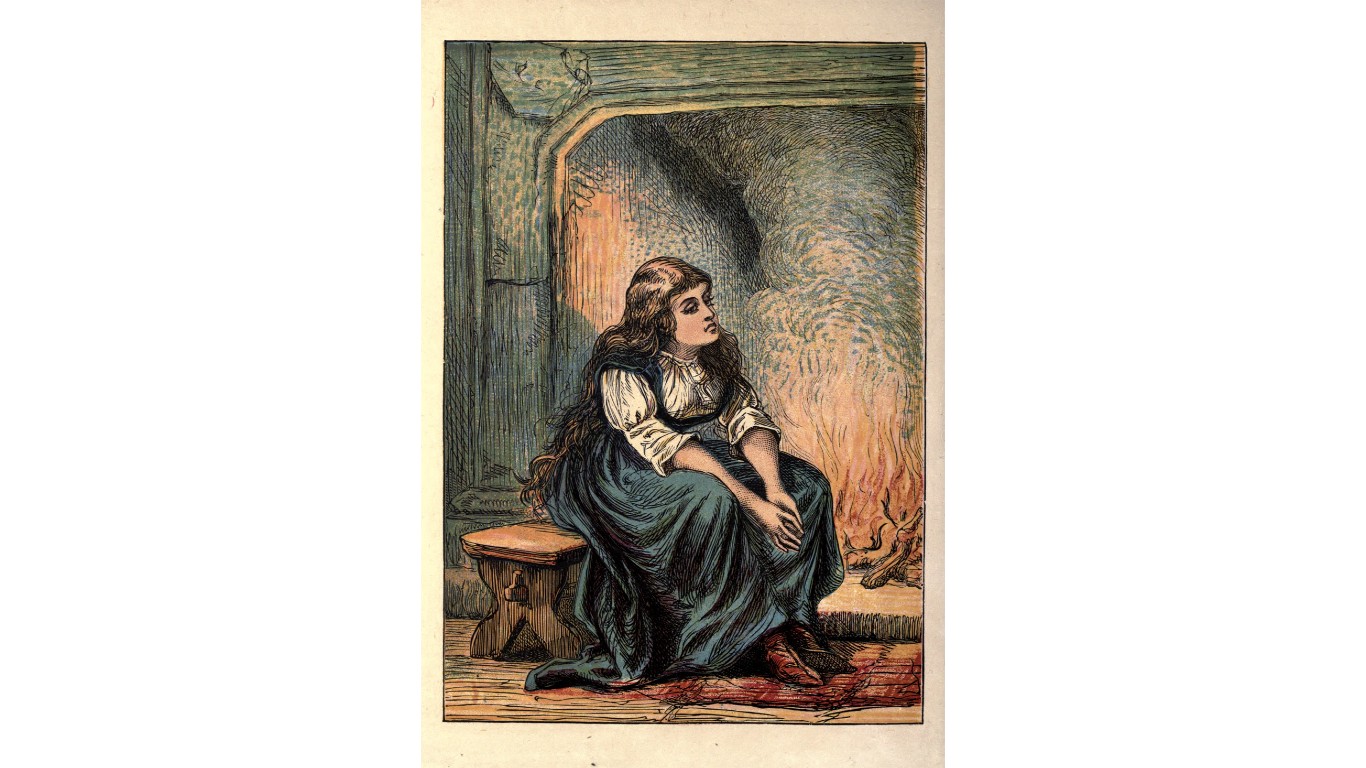
Cinderella
> By: George Routledge and Sons
There are many variations of the Cinderella story, including interpretations in Italian, French, and German. It tells of a young girl who rises above adversity to great fortune. Many versions feature a wicked stepmother and a fairy godmother. The basic story goes back to ancient Greece and is a part of popular culture today, not least because of the 1950 Disney animated film of the story. This version was published in London and New York in 1865.
[in-text-ad-2]
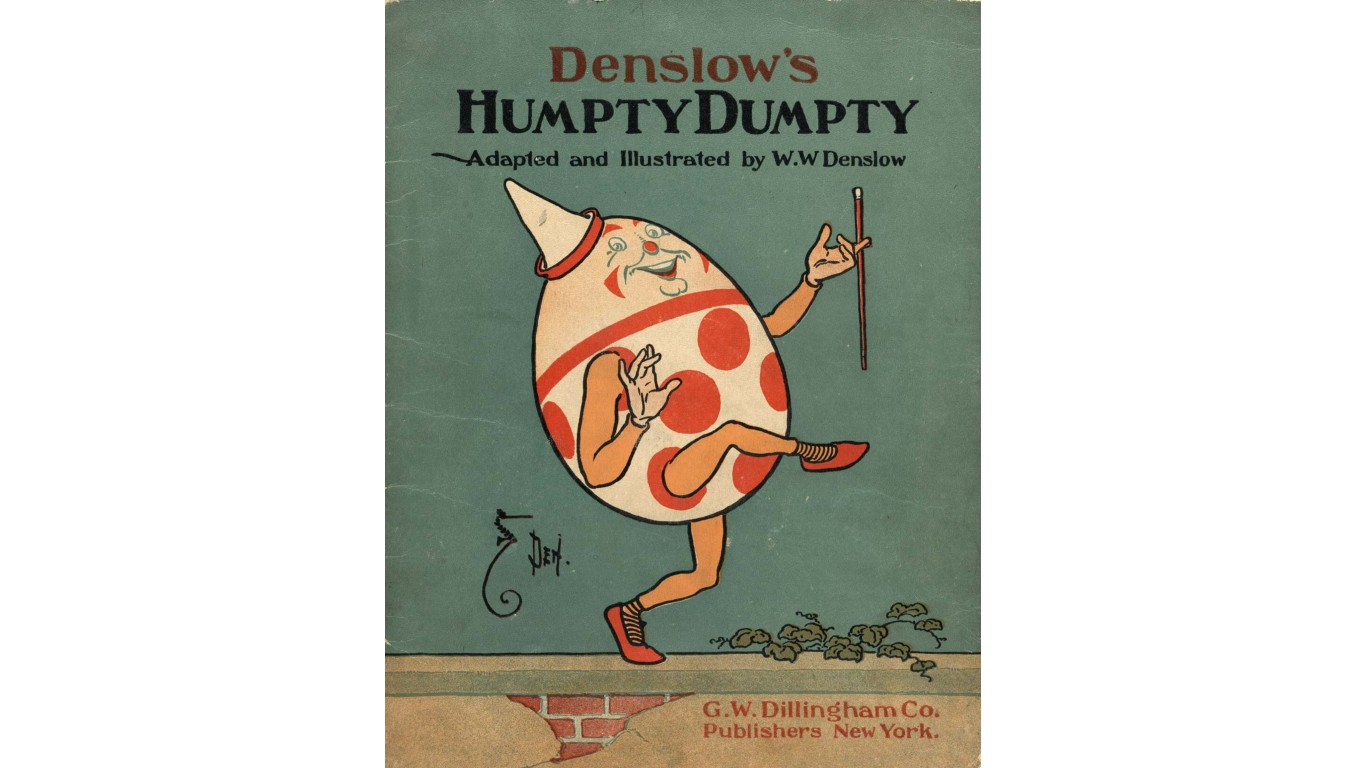
Denslow’s Humpty Dumpty
> By: W.W. Denslow
Humpty Dumpty is a well-known English nursery rhyme character. Denslow’s illustrated telling of the story was first published in 1903.
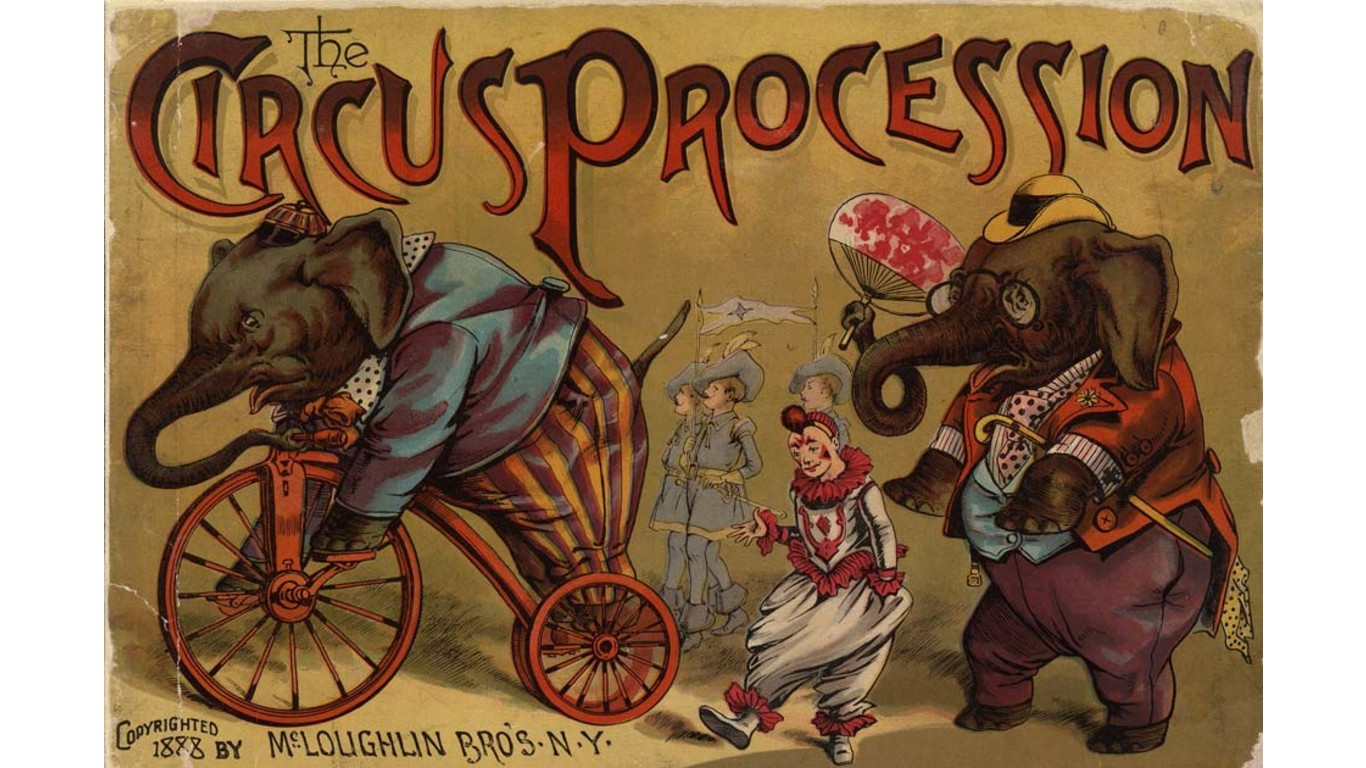
The Circus Procession
> By: McLoughlin Bros (publishers)
“The Circus Procession” is an illustrated book full of circus animals and performers, with commentary in verse, published by McLoughlin Bros in New York in 1888. The actual author is unknown.
[in-text-ad]
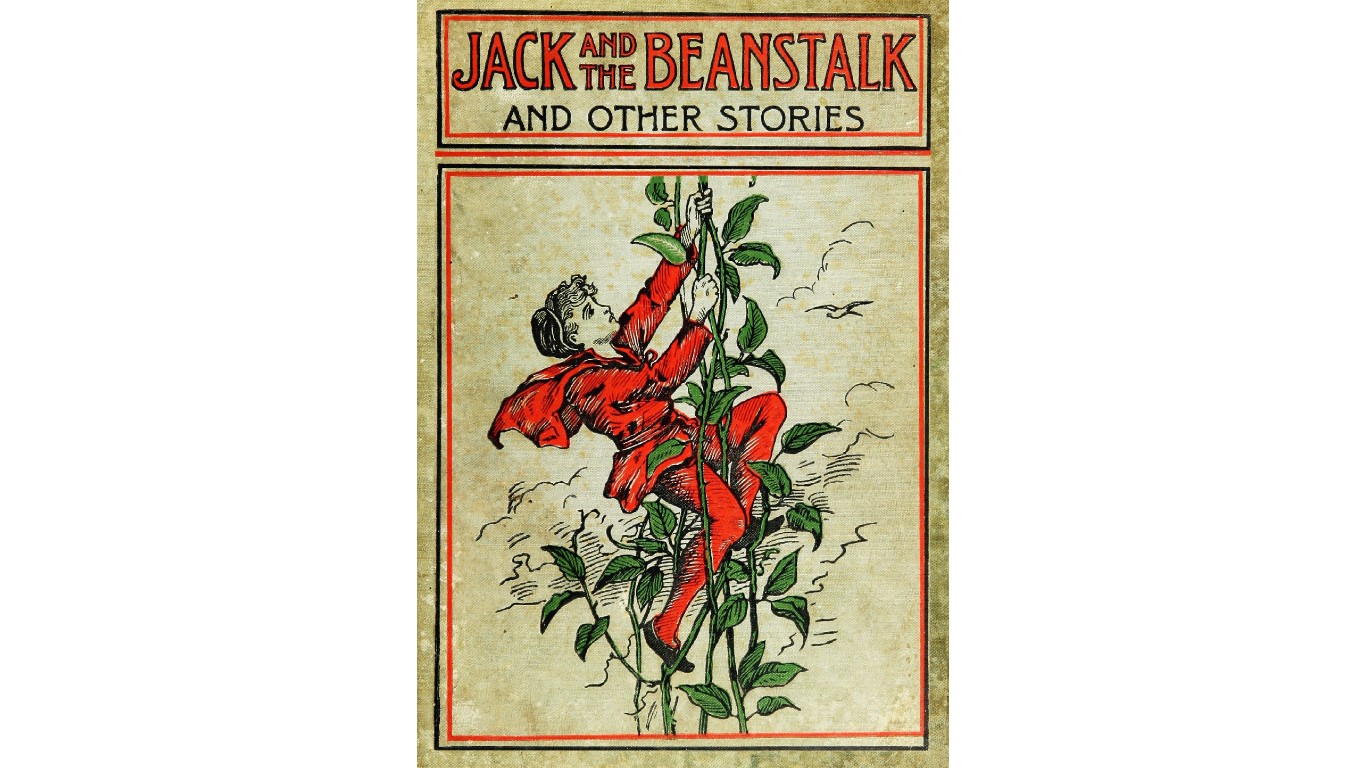
Jack and the Beanstalk and Other Stories
> By: A.L. Burt, Publisher (publisher)
“Jack and the Beanstalk” is an English fairy tale that dates back to the 18th century. Jack, a poor country boy, trades the family cow for magic beans, which grow into a beanstalk that reaches up into the clouds. He climbs the beanstalk and finds himself in the castle of a giant that he has to outwit. This version, from 1890, was part of the publisher’s Mother Goose series.
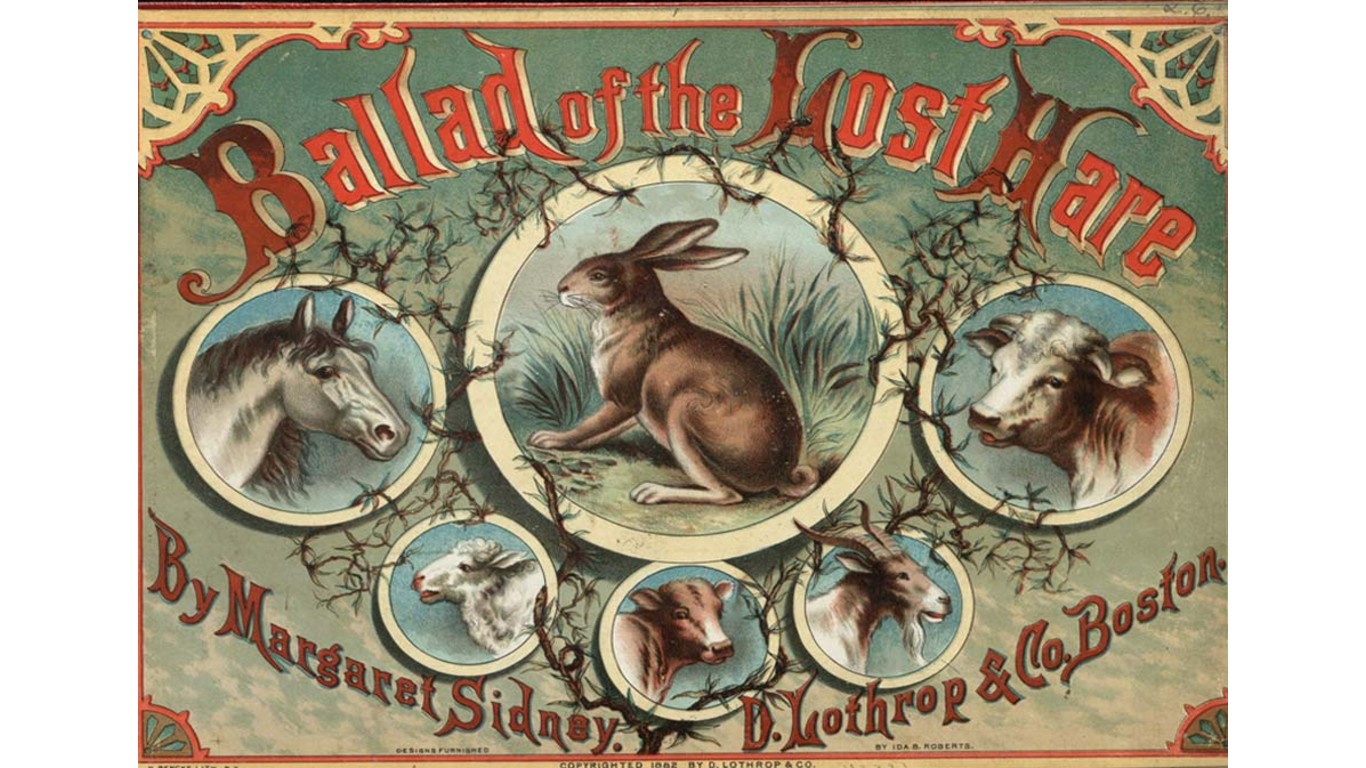
Ballad of the Lost Hare
> By: Margaret Sidney
“The Ballad of the Lost Hare,” dating from 1884, is the story, told in verse, of a disobedient hare who has all kinds of adventures with other creatures. The byline is a pseudonym for Connecticut-born writer and publisher Harriett Lothrop.
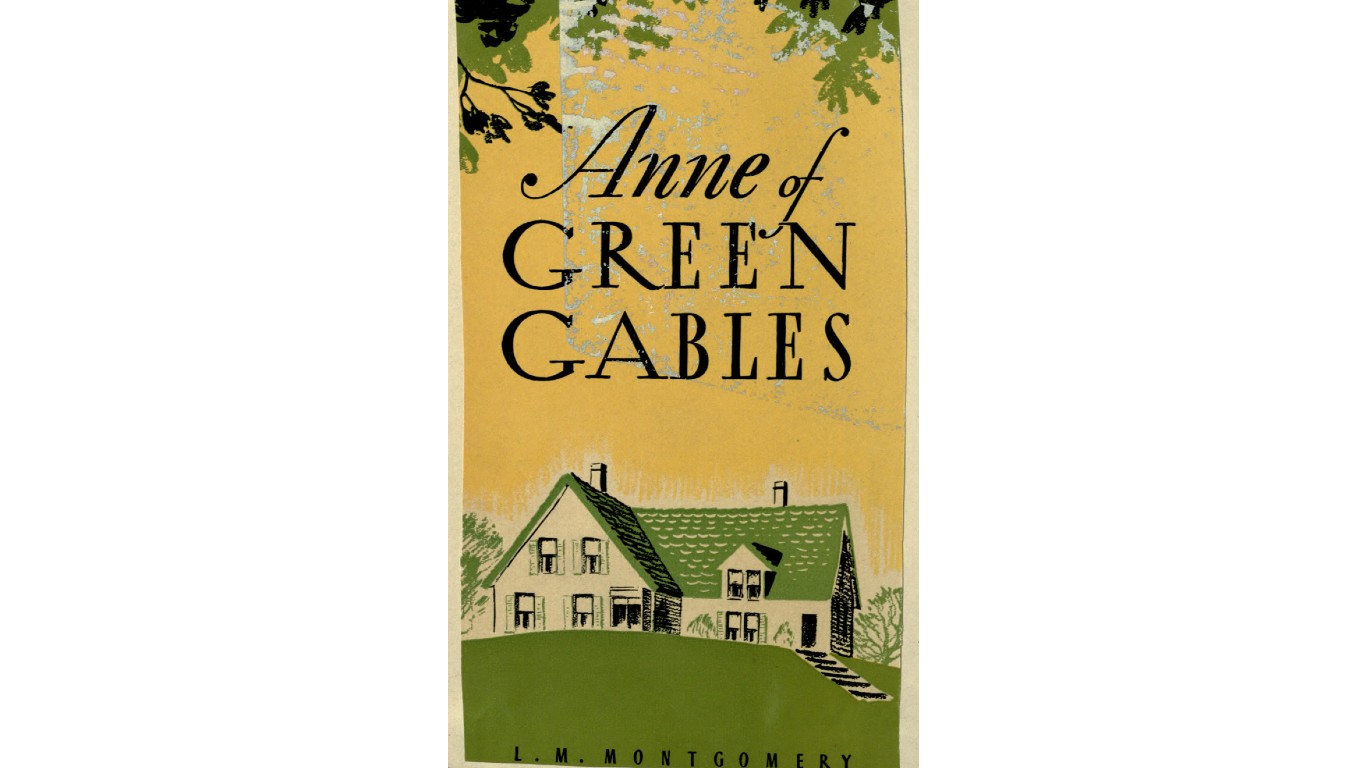
Anne of Green Gables
> By: Lucy Maud Montgomery
Written by a Canadian author, this 1908 children’s classic was the first in a series of novels about Anne Shirley — an imaginative young orphan sent to live with unmarried siblings who have a farmhouse called Green Gables on Prince Edward Island. Translated into more than 35 languages, it has sold more than 50 million copies worldwide.
[in-text-ad-2]
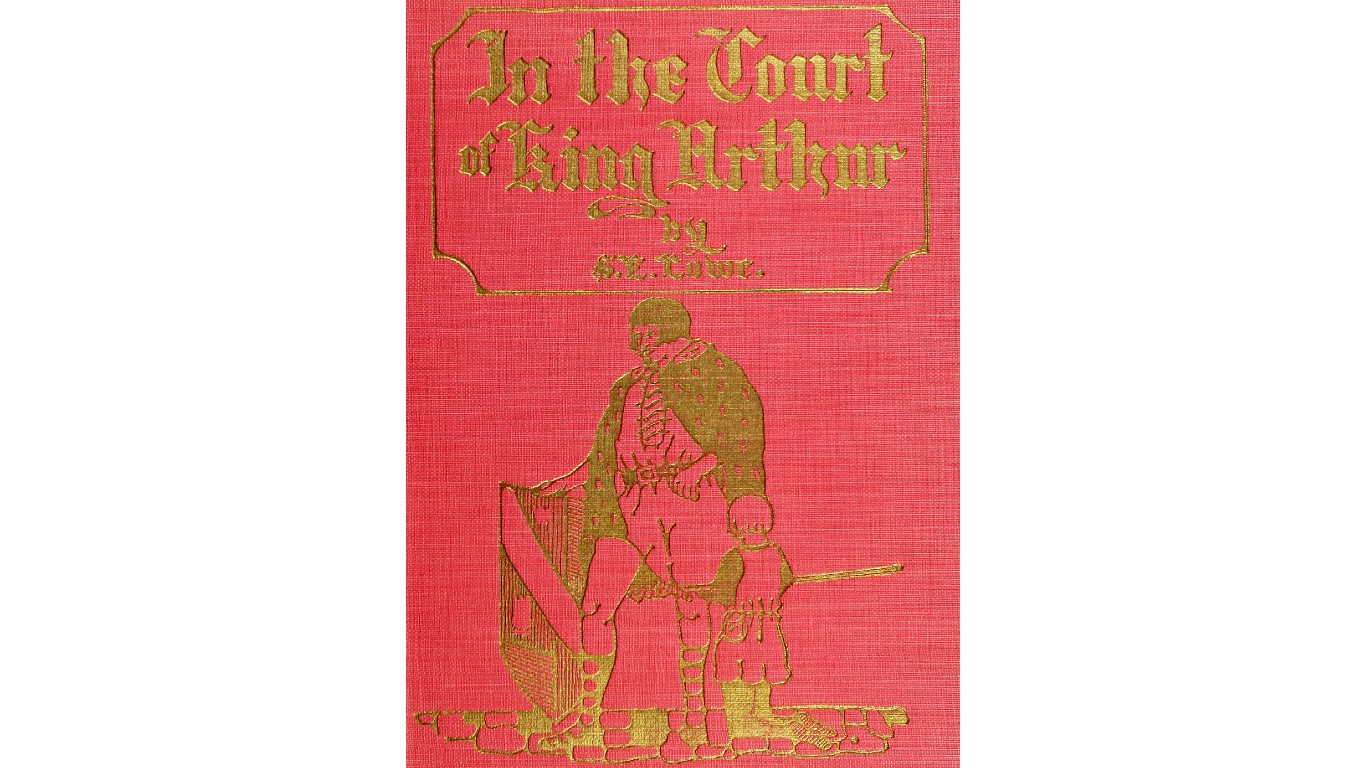
In the Court of King Arthur
> By: Samuel Edward Lowe
Published in 1918 for the first time, “In the Court of King Arthur” is a collection of 31 adventure tales featuring characters from the Arthurian legends. Author Lowe was a German-born publishing executive who at one point worked closely with Disney Studios.
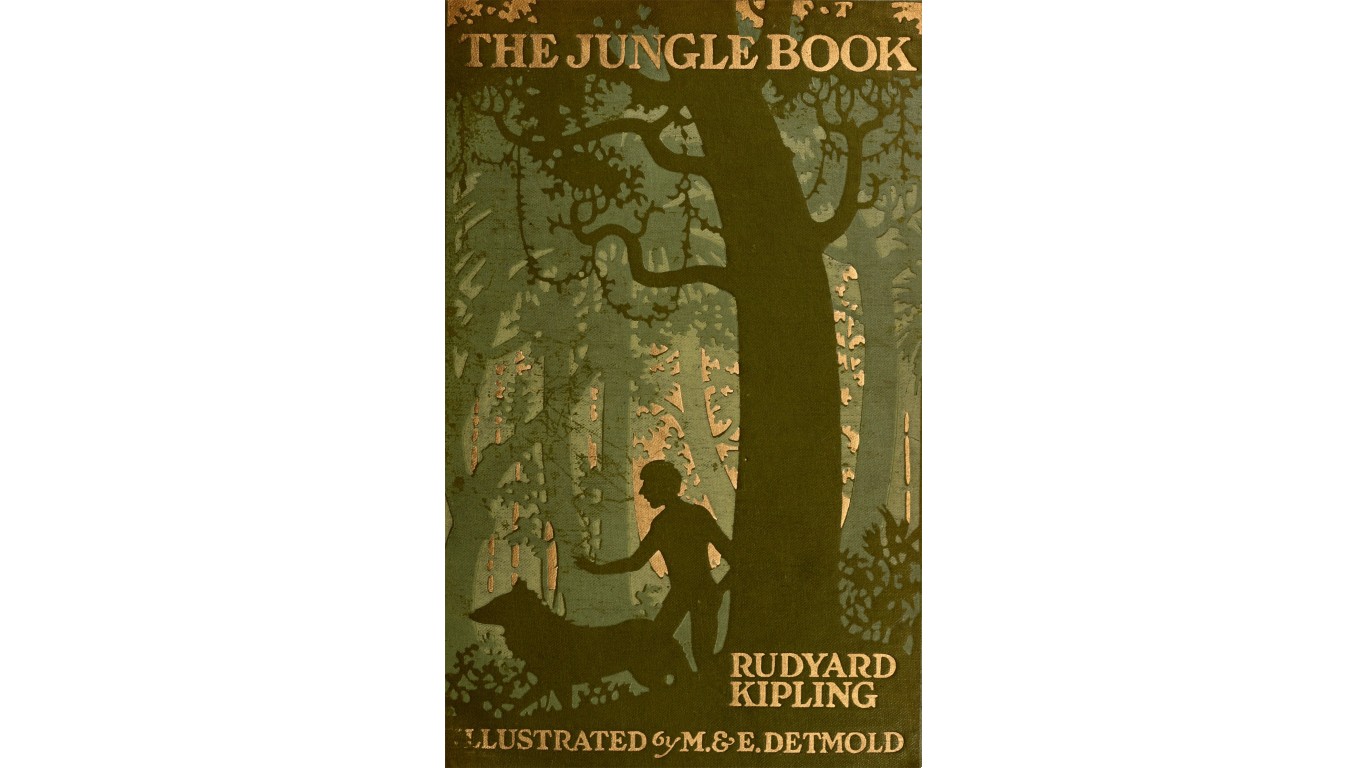
The Jungle Book
> By: Rudyard Kipling
This 1894 collection of stories by Rudyard Kipling, inspired by his experiences in colonial India, centers around Mowgli, a boy raised in the jungle by wolves. Most of the characters are animals, such as Shere Khan the tiger and Baloo the bear. Among other adaptations, the work was made into a hugely successful animated film by Disney in 1967 and remade in a live-action version in 2016.
[in-text-ad]
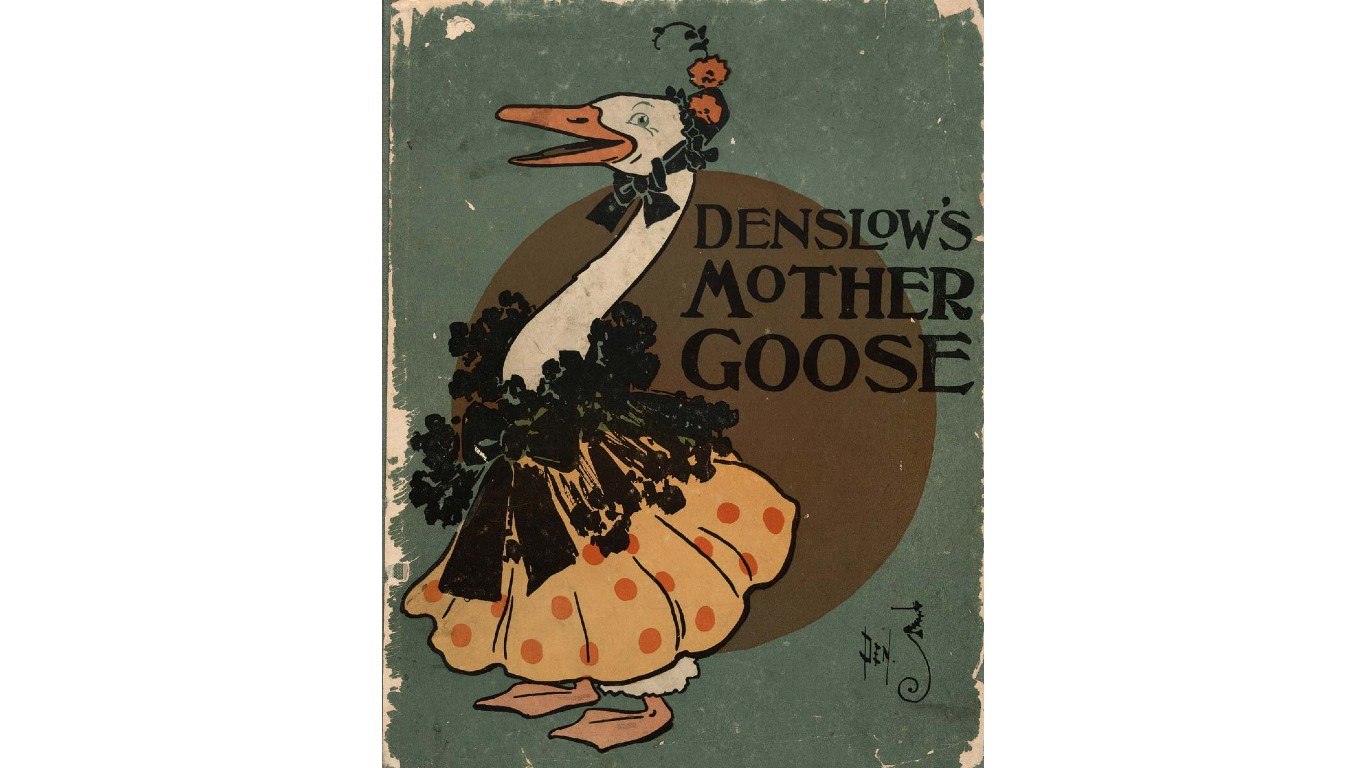
Denslow’s Mother Goose
> By: W.W. Denslow
Originally a French character (Mère l’Oye), Mother Goose is the imaginary author of a series of fairy tales and nursery rhymes. Antecedents date back to the 17th century. W.W. Denslow’s 1901 version includes all the classics — “Humpty Dumpty,” “Old King Cole,” “Little Jack Horner,” and many more.
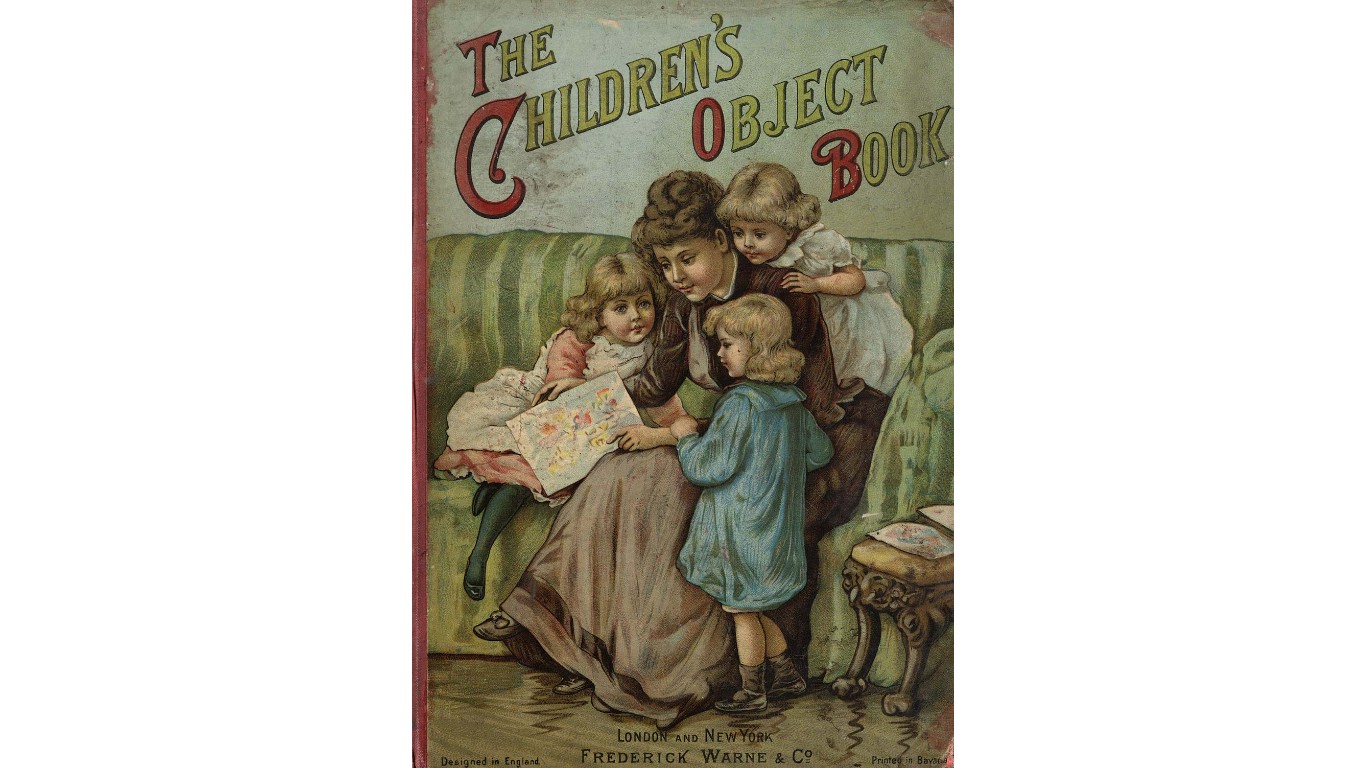
The Children’s Object Book
> By: Frederick Warne & Co.
“The Children’s Object Book” was published, with no author’s name or date of publication attached, at some point in the late 19th century, probably the 1880s. It consists of captioned illustrations to teach children the names of different tools, household items, wildlife, and other things as they appeared in the Victorian era.
Travel Cards Are Getting Too Good To Ignore (sponsored)
Credit card companies are pulling out all the stops, with the issuers are offering insane travel rewards and perks.
We’re talking huge sign-up bonuses, points on every purchase, and benefits like lounge access, travel credits, and free hotel nights. For travelers, these rewards can add up to thousands of dollars in flights, upgrades, and luxury experiences every year.
It’s like getting paid to travel — and it’s available to qualified borrowers who know where to look.
We’ve rounded up some of the best travel credit cards on the market. Click here to see the list. Don’t miss these offers — they won’t be this good forever.
Thank you for reading! Have some feedback for us?
Contact the 24/7 Wall St. editorial team.
 24/7 Wall St.
24/7 Wall St.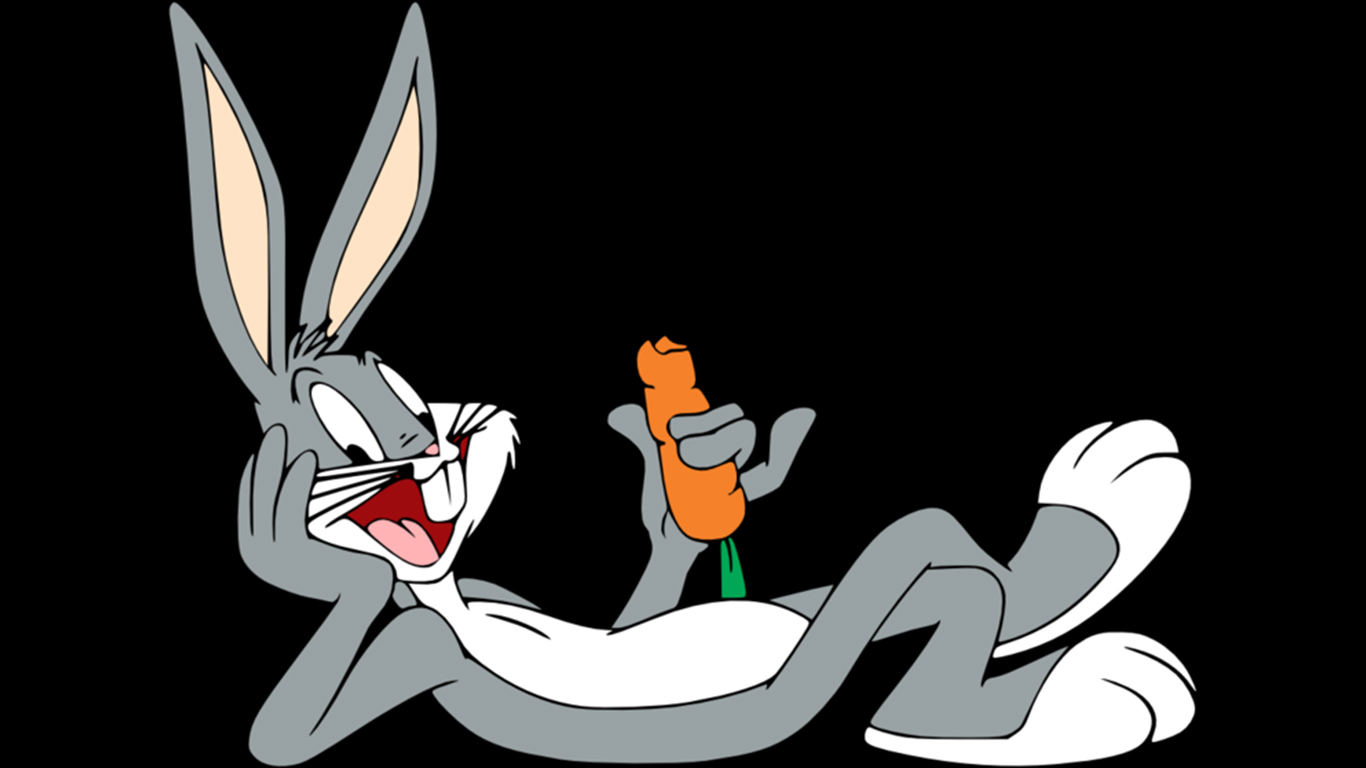 24/7 Wall St.
24/7 Wall St.